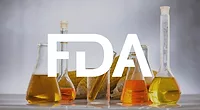Achievements of FDA's Foods Program in 2021

eclipse_images/E+ via Getty Images
Despite the unprecedented challenges we've all faced during the COVID-19 pandemic, 2021 was another important year for the U.S. Food and Drug Administration's (FDA's) Foods Program.
I'd like to highlight some of the strides we made last year in protecting the safety of human foods, which we will continue building on this year. They reflect on the work done by the dedicated teams in FDA's Office of Food Policy and Response, the Center for Food Safety and Applied Nutrition, and the Office of Regulatory Affairs.
FDA Food Safety Modernization Act (FSMA)
January 2021 marked the ten-year anniversary of FSMA being signed into law. Congress' mandate then is still true today: It's not enough to respond to outbreaks of foodborne illness, we must prevent them from happening in the first place. We continue to answer that call.
Most significantly, in December 2021 we published a much-anticipated proposed rule to establish revised standards for agricultural water to further strengthen the safety of produce. It would require certain farms to conduct annual assessments and, if necessary, implement measures to minimize potential risks. I believe this could be a game-changer for food safety because agricultural water has often been a factor in produce-related outbreaks.
Also in December, the FDA issued a final laboratory accreditation rule to improve the accuracy and reliability of certain food testing.
New Era of Smarter Food Safety
Looking for quick answers on food safety topics?
Try Ask FSM, our new smart AI search tool.
Ask FSM →
In our work to build on FSMA and our continued commitment to modernization under the New Era of Smarter Food Safety, I believe that we stand on the verge of a food safety revolution with new tools, technologies, and approaches to some of our most significant challenges.
One of those challenges is strengthening our response to foodborne illness outbreaks to inform future preventive activities. In December, FDA released its Foodborne Outbreak Response Improvement Plan designed to improve the speed, effectiveness, and coordination of outbreak investigations. The priorities include tech-enabled traceability, root cause analysis, and outbreak data.
As an example of our focus on prevention, FDA stressed the importance of examining and addressing recurring factors associated with outbreaks in a report on the investigation into the Fall 2020 outbreak of E. coli O157:H7 illnesses linked to leafy greens grown in California. In that report, released in April, the FDA expressed concern about a persistent E. coli strain O157:H7, which appears to be a “reasonably foreseeable hazard,” and found that the likely source of the outbreak strain was livestock, including those on adjacent lands.
Thinking Outside the Box to Strengthen Prevention
To further strengthen prevention, we know that we must think and act differently throughout the agency's Foods Program.
The agency continues working toward finalizing the Proposed Food Traceability Rule to enhance the ability to trace food to its source. Our goal is to help ensure that traceability tools are affordable for small and mid-size operations. In June, FDA launched the Low- or No-Cost Tech-Enabled Traceability Challenge to encourage the development of traceability systems that use low- to no- cost economic models. We received a record number of submissions, 90 from around the world, and chose 12 winning teams representing the U.S., Canada, and New Zealand. The winning submissions are smart, impactful, and cover the entire food continuum. We are actively working to communicate these ideas to the stakeholders that need them most.
The pandemic accelerated the need for alternative approaches when FDA is unable to conduct traditional surveillance. Therefore, we have been conducting remote regulatory assessments at a variety of establishments, including remote inspections of importers subject to the Foreign Supplier Verification Programs requirements under FSMA. We're examining importers' records to help ensure that foreign food suppliers are meeting U.S. safety standards. These remote assessments have provided valuable information to assist with regulatory decisions and resource targeting and we are now exploring what role they might play in our regulatory oversight toolbox.
We have been engaging our state partners and stakeholders in different ways. In 2021, FDA signed domestic mutual reliance agreements with California, Florida, Utah, and Wisconsin. These agreements facilitate a coordinated effort to reduce human foodborne illness outbreaks, reduce duplication of regulatory oversight and focus on areas of higher risk.
And in 2021, we also marked the continued success of the FDA-funded Rapid Response Teams (RRTs) that respond to human and animal food emergencies in 24 states.
Safety of Foods Ordered Online and a Culture of Food Safety
In October, we held a three-day summit to explore potential safety vulnerabilities in foods ordered online and delivered directly to consumers. The pandemic accelerated the need for a conversation about e-commerce as consumers increasingly order foods online in lieu of going to a store or restaurant. More than 4,100 people registered for the summit from over 44 countries, and almost 14,000 people have viewed the recordings. We are considering the input we received to decide on next steps.
Another New Era priority is supporting the establishment of a food safety culture on farms and in food facilities so that food safety is done the right way every day—not just because it's the law, but because it's the right thing to do. In November, the FDA began co-sponsoring a series of webinars with the non-profit Stop Foodborne Illness to engage experts in an exchange of ideas and experiences related to the importance of a robust food safety culture in helping ensure safe food production.
Reflecting on 2021 and Moving Forward in 2022
There is so much more that the Foods Program accomplished in 2021. For more on our work on food safety and nutrition, including efforts to reduce sodium intake and protect young children from toxic elements, I encourage you to read Acting Commissioner Janet Woodcock's FDA 2021 Year in Review – Highlights Report.
In 2022, we will move forward on these achievements and others, including holding public meetings on the proposed revised agricultural water standards and releasing a final Food Traceability Rule. We are exploring the best uses of artificial intelligence and considering the most effective ways to unleash the power of data, which is so critical to advancing food safety.
I believe that working together, we will bend the curve of foodborne illnesses in this decade so that consumers in this country, and around the world, can lead better lives.









